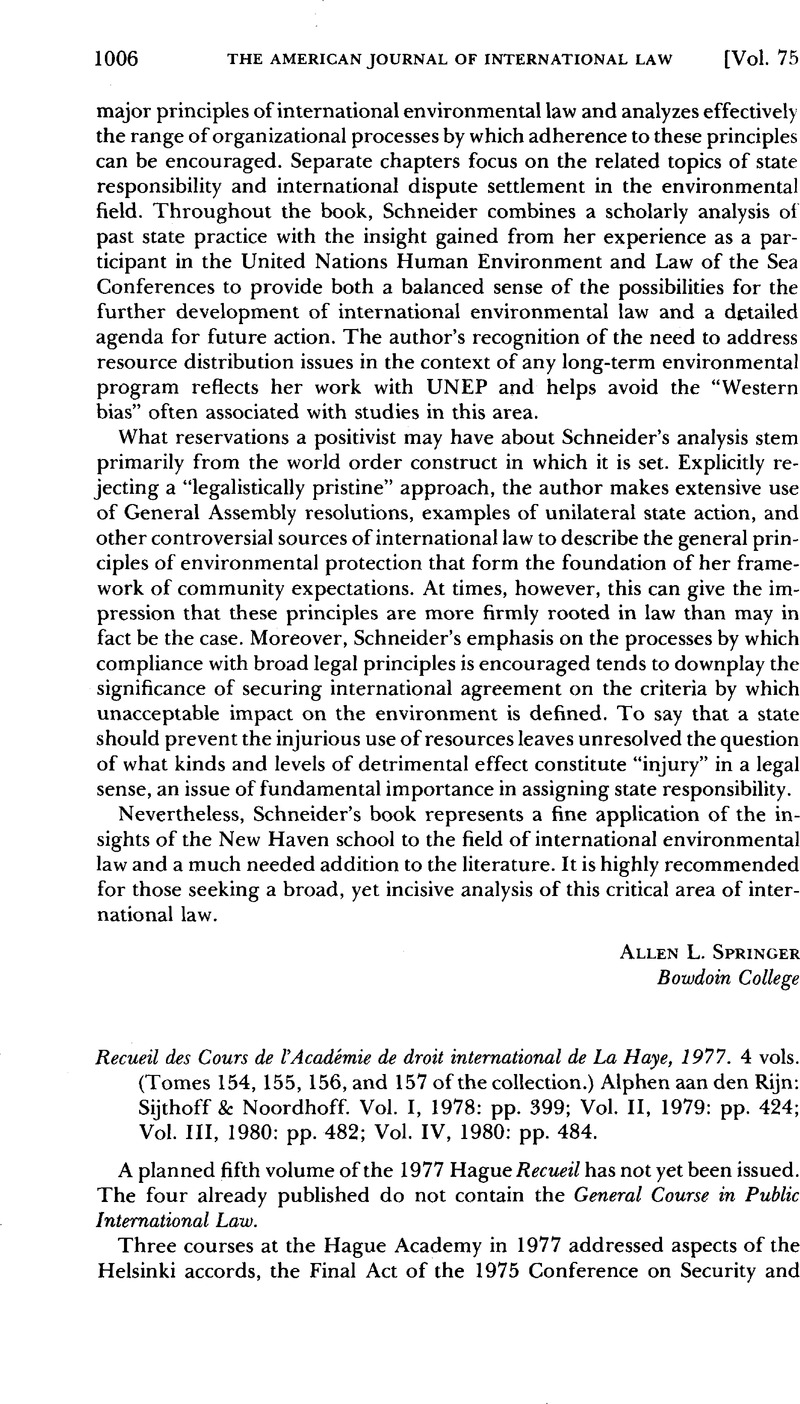No CrossRef data available.
Published online by Cambridge University Press: 27 February 2017

1 Reviewed in 73 AJIL 724 (1979).
2 This is not the place for an extended critique; my own analysis of the “standing” issue in the Helsinki Final Act, in some ways more superficial but in others significantly different, is Rubin, , Challenges to Human Rights and World Order, in World in Transition 66, 70–72 (Han ed. 1979)Google Scholar.
3 Oliver, , The United Nations in Bangladesh (1978)Google Scholar. This insider’s account was, of course, published after Morse delivered his course at The Hague.
4 Mosler, , The International Society as a Legal Community, 140 Recueil des Cours (1974 IV)Google Scholar, reviewed in 72 AJIL 170 (1978).
5 Arangio-Ruiz, , The Concept of International Law and the Theory of International Organization, 137 Recueil des Cours (1972 III)Google Scholar, reviewed in 69 AJIL 440, 444–45 (1975).
6 “From the point of view of the common interest, international law is not capable of camouflaging the excesses of capitalism nor even of moderating the swagger of childish governments.”